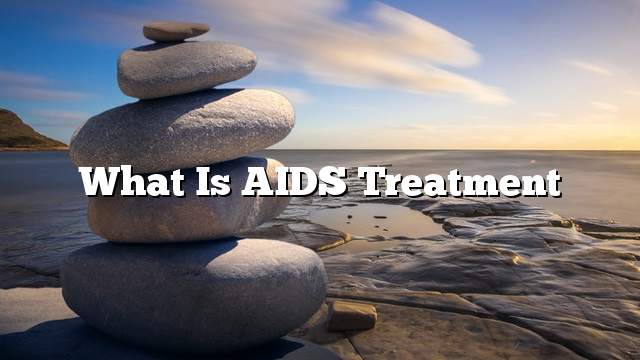HIV is the main cause of HIV / AIDS. The virus attacks the body’s immune system and weakens it. The human body, because of this weakness in the immune system, is at high risk for many diseases such as cancer , And when the body is infected with this virus remains the virus in his body forever.
- Sexual intercourse whether oral, vaginal or anal with a person infected with the virus.
- Through blood transfusion or using the same needle used by a person infected with the virus.
- From mother to child as the pregnant mother infected with the virus transmitted to her child through the blood circulation between them.
- The HIV-infected mother transmits the virus to her baby.
The virus is not transmitted through any of the following methods
- The cross contact is like hugging
- Mosquito
- Participation in sports
- Touch any of the objects touched by someone infected with the virus
- Drug abuse is the kind of person who injects themselves with needles
- Infants born to mothers with HIV who did not receive HIV treatment during pregnancy
- People who have unprotected sex, especially with people who have high-risk behaviors, are exposed to HIV infection
- People who received transfusions or coagulation products between 1977 and 1985, before the virus was detected.
- Sexual partners who have sex with more than one person or engage in high-risk activities (such as injecting drugs or anal sex)
People infected with AIDS have their immune system damaged by HIV and are at very high risk of getting infections that are uncommon in people who have a healthy immune system, called opportunistic infections.
- diarrhea
- High temperature
- continuous headache
- Ulcers in the mouth
- Muscle spasms
- Sweating at night
- Diffuse skin rash
- Sore throat
- Swelling of lymph nodes
Many people who are infected may not have symptoms and these symptoms may be similar to other non-AIDS diseases
As for Common symptoms Include:
- shudder
- Fever
- rash
- Sweating (especially at night)
- Swelling of lymph nodes
- Full weakness in the body with fatigue
- Weight loss
There is no effective treatment to this day for HIV infection, but a number of treatments are available to control symptoms and avoid increasing them and increasing the injury to the person ill. This treatment can also improve the quality and longevity of those whose symptoms have developed.
These include:
- Antiretroviral therapy suppresses the replication of HIV in the body, a combination of antiretroviral drugs (ART) or highly active antiretroviral therapy (HAART), which is very effective in reducing the amount of virus in the bloodstream. This effect is measured Through the proportion of the virus in the blood of the injured.
- When used for a long time, these drugs increase the risk of heart attack, by increasing levels of cholesterol and glucose (sugar) in the blood.
- Joining an infected person in a special group of people who have contracted the disease can greatly help relieve stress and stress.
This disease is still considered a fatal disease and has no effective treatment. What you need to do as an uninfected person is to prevent and prevent the transmission of infection to you by avoiding the use of any narcotic needles, mixing your blood with anyone else and certainly avoiding illegal sexual relations. You may be severely affected by this infection, God forbid.
Sources :
Panel on Antiretroviral Guidelines for Adults and Adolescents. Guidelines for the use of antiretroviral agents in HIV-1-infected adults and adolescents
Department of Health and Human Services. Updated May 1, 2014. Accessed May 12, 2014
Quinn TC. Epidemiology of human immunodeficiency virus infection and acquitted immunodeficiency syndrome. In: Goldman L, Schafer AI, eds. Goldman’s Cecil Medicine. 24th ed. Philadelphia, PA: Elsevier Saunders; 2011: chap 392
MedlinePlus
